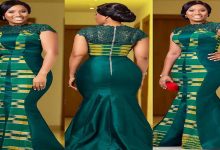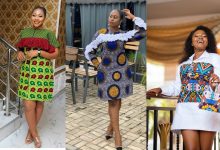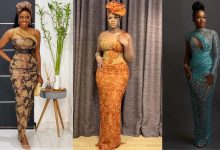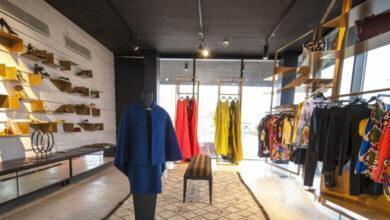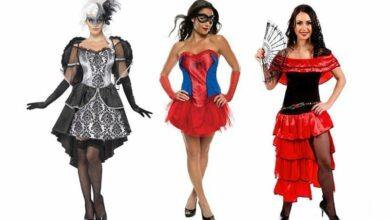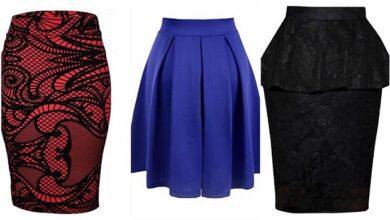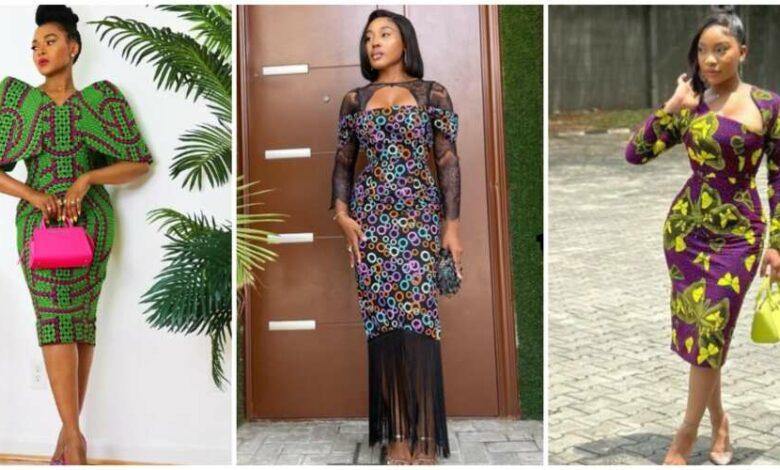
Top 15 Sustainable Fashion Trends in Nigeria
Top 15 Sustainable Fashion Trends in Nigeria – Sustainability has emerged as a significant global concern in recent years, and the fashion industry is no exception. In Nigeria, a country with a rich cultural heritage and a vibrant fashion scene, sustainable fashion has gained traction. From local designers to fashion enthusiasts, there is a growing interest in adopting eco-friendly practices and supporting ethical fashion. In this article, we will explore the top 15 sustainable fashion trends that are shaping Nigeria’s fashion landscape, promoting social and environmental responsibility.Top 15 Sustainable Fashion Trends in Nigeria
The Top 15 Sustainable Fashion Trends in Nigeria Are:
1. Traditional Fabrics and Techniques
Nigerian fashion is celebrated for its diverse range of traditional fabrics and techniques, such as Ankara, Adire, Aso Oke, and Akwete. These fabrics are not only visually captivating but also sustainable. By incorporating traditional fabrics and techniques into contemporary designs, Nigerian fashion designers are preserving cultural heritage and reducing the reliance on environmentally harmful textiles.Good morning My Love Message
👉 Relocate to Canada Today!
Live, Study and Work in Canada. No Payment is Required! Hurry Now click here to Apply >> Immigrate to CanadaRead Also: Top 15 Reliable Transport Services in Nigeria
2. Upcycling and Repurposing
Upcycling and repurposing involve transforming old or discarded materials into new fashion pieces. Nigerian designers are creatively repurposing fabrics, clothing, and accessories to give them a fresh lease on life. This trend not only reduces waste but also adds a unique touch to fashion pieces, making them one-of-a-kind.
3. Slow Fashion Movement
The slow fashion movement is gaining momentum in Nigeria, encouraging consumers to invest in high-quality, timeless pieces rather than fast fashion items. By promoting conscious consumption and encouraging fewer but better purchases, this trend emphasizes durability, ethical production practices, and fair wages for garment workers.
4. Natural and Organic Fibers
Nigerian designers are increasingly using natural and organic fibers, such as organic cotton, hemp, and bamboo, to create sustainable clothing. These fibers are renewable, biodegradable, and have a lower environmental impact compared to synthetic materials. By choosing natural fibers, fashion enthusiasts in Nigeria are embracing eco-friendly alternatives without compromising on style.Romantic love message
Read Also: Top 15 Best Low-Cholesterol Milk Brands in Nigeria
5. Ethical Fashion Brands
The rise of ethical fashion brands in Nigeria has provided consumers with sustainable alternatives to mainstream fashion. These brands prioritize fair trade practices, transparency, and the welfare of workers throughout the supply chain. By supporting ethical fashion brands, Nigerians are contributing to a more sustainable and socially responsible industry.
6. Zero Waste Designs
Zero waste designs aim to eliminate textile waste during the production process. Nigerian designers are incorporating innovative cutting techniques, pattern-making, and garment construction methods to minimize fabric waste. This approach showcases creativity and resourcefulness while reducing the environmental footprint of the fashion industry.Information guide Nigeria
7. Locally Sourced Materials
To reduce carbon emissions associated with transportation and support local communities, Nigerian fashion designers are sourcing materials locally. From fabrics to accessories, utilizing locally available resources promotes sustainability, boosts local economies, and celebrates Nigeria’s rich cultural heritage.
👉 Relocate to Canada Today!
Live, Study and Work in Canada. No Payment is Required! Hurry Now click here to Apply >> Immigrate to Canada8. Handmade and Artisanal Products
Handmade and artisanal products are gaining popularity in Nigeria’s sustainable fashion scene. Craftsmanship and attention to detail are highly valued, and the use of traditional techniques adds a unique touch to fashion pieces. Supporting local artisans not only preserves traditional skills but also ensures the longevity of the fashion industry.Good morning My Love Message
Read Also: 15 Most Popular Indigenous Customs in Nigeria
9. Minimalist and Versatile Wardrobe
The concept of a minimalist wardrobe focuses on investing in essential, high-quality pieces that can be mixed and matched for various occasions. This trend encourages consumers to buy fewer items and make the most of their wardrobe, reducing the demand for fast fashion and promoting conscious consumption.
10. Rental and Clothing Swapping
Rental platforms and clothing swapping initiatives are gaining popularity in Nigeria. These platforms allow individuals to rent or exchange clothing items, reducing the need for excessive consumption and minimizing the environmental impact of fashion. This trend offers affordability, variety, and an eco-conscious alternative for fashion enthusiasts.NYSC Portal
11. Vegan and Cruelty-Free Fashion
Vegan fashion, which excludes materials derived from animals, and cruelty-free fashion, which rejects any form of animal exploitation, are emerging trends in Nigeria. By opting for synthetic leather alternatives and avoiding animal-derived materials, Nigerians are aligning their fashion choices with ethical and sustainable values.
12. Transparent Supply Chains
Transparency in the fashion supply chain is becoming increasingly important to Nigerian consumers. They want to know where and how their clothes are produced, ensuring ethical practices are followed. Brands that provide transparency build trust with their customers, empowering them to make informed and sustainable purchasing decisions.JAMB portal
Read Also: Top 15 Music Video Festivals in Nigeria
13. Gender-Neutral and Inclusive Fashion
Gender-neutral and inclusive fashion is breaking stereotypes and promoting diversity in Nigeria’s fashion industry. Designers are creating genderless clothing options and embracing models of all shapes, sizes, and backgrounds. This trend challenges traditional norms, celebrates individuality, and encourages sustainable fashion choices.
14. Sustainable Fashion Education
Educational initiatives focusing on sustainable fashion are on the rise in Nigeria. Workshops, seminars, and courses aim to raise awareness and provide knowledge about eco-friendly practices, ethical production, and responsible consumption. By educating the younger generation, Nigeria is nurturing a more sustainable fashion future.
15. Circular Fashion Systems
Circular fashion systems aim to minimize waste and maximize the lifespan of clothing through recycling, repurposing, and composting. Nigerian fashion designers are exploring innovative ways to create circular fashion, such as incorporating recycled materials and designing garments with end-of-life options in mind. This approach fosters a more sustainable and resource-efficient fashion industry.
Read Also: Top 15 Weather-Resistant Exterior Paints in Nigeria
Conclusion
Nigeria’s fashion industry is embracing sustainability with open arms, adopting various eco-friendly practices and trends. From the use of traditional fabrics to the rise of ethical fashion brands and circular fashion systems, Nigerians are championing social and environmental responsibility in their fashion choices. As sustainability becomes more integral to the industry, Nigeria’s fashion scene is poised to become a global leader in creating a more conscious and sustainable future. By supporting these top 15 sustainable fashion trends, Nigerians are not only making a fashion statement but also contributing to a greener and more inclusive fashion landscape.
Check JAMB Result
Check and Confirm: How much is Dollar to Naira

